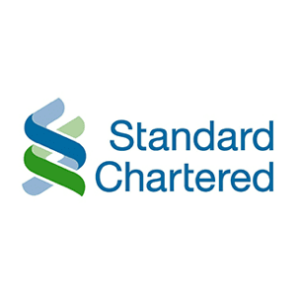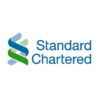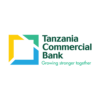Chief Financial Officer at Standard Chartered
Job Overview

Chief Financial Officer at Standard Chartered
Chief Financial Officer at Standard Chartered
Standard Chartered
Chief Financial Officer
Dar es-Salaam
JOB SUMMARY
Financial strategy and Planning – Contribute strongly to the formulation of SCB Tanzania strategic and medium-term financial plans and their implementation.
Ensure accurate and timely financial reporting and compliance with Local Regulatory and International standards.
Raise the level of understanding and awareness of the Bank’s risk and profitability methodologies amongst SCB Tanzania’s management team and to contribute appropriately to their implementation.
Monitor and drive compliance with local capital adequacy and reserve asset requirements and draw management attention to any action to meet these requirements.
Manage the Bank’s tax affairs effectively, keeping management informed about those affairs and ensure compliance
Ensure that SCB Tanzania property portfolio is effectively managed and maintained to the highest standard prescribed in the Local Regulatory and Group policy
Manage operational risk of the Finance function through all applicable policies and by serving as local Risk Owner for operational risk sub-types under External Rules & Regulations
Implementing and monitoring compliance with Group/local accounting policies, standards, and procedures.
RESPONSIBILITIES
Strategy
To be a proactive member of the Senior Management Team in Standard Chartered Bank Tanzania Limited and contribute strategically to the leadership and management of the Bank, including the achievement of business-line objectives.
Contribute strongly to the formulation of SCB Tanzania strategic and medium-term financial plans and their implementation.
Development of SCB Tanzania business through involvement in strategic planning, marketing, and budgeting
The achievement of SCB Tanzania strategic plans and budgets through monitoring and regular and timely reporting to Management and the Local Board
Business
Decision making on the future direction of the business in Tanzania and day to day issues which impact on this
Control of operating costs and capital expenditure levels, bringing to the attention of Management areas where savings could be achieved.
Advise on the financial and risk implications of resource allocation and other business decisions, and review the financial evaluation of proposed projects which require the support or approval of country management; and
Raise the level of understanding and awareness of the Bank’s risk and profitability methodologies amongst SCB Tanzania’s management team and to contribute appropriately to their implementation.
Staff development within Finance Division through involvement in planned programmes
Processes
FINANCIAL MANAGEMENT
Be an objective source of financial expertise and advice and provide an independent challenge to business issues. As part of this should:
Support the management of the Balance Sheet
Comment on financial performance to local management, particularly drawing attention to favourable and unfavourable trends in operating performance, exposure to unacceptable risks; ways of improving profitability, and management of risk.
MANAGEMENT ACCOUNTING
Following The Leadership Provided By The Financial Controller And Business Finance Managers, Business Information In Standards And Principles For Management Information, Will
Initiate, co-ordinate and prepare the consolidation of country budget and forecasts, including contributing to the setting of performance targets
Prepare the monthly management accounts
Co-ordinate the preparation of the Business Unit Reports and ensure that the reports are relevant and focused.
Provide customer and product profitability information and lead the development and maintenance of product costing standards.
FINANCIAL ACCOUNTING
Responsibilities
In addition to applying the standards and principles for financial and UK regulatory reporting established by the Group Chief Accounting Officer, the Chief Finance Officer has the following responsibilities:
Local Regulatory and Statutory Reporting
To deliver accurate and timely financial and statistical information to local regulators
To liaise with local regulator(s) on issues arising from financial, statistical, and other reports
To monitor compliance with local capital adequacy and reserve asset requirements and draw management attention to any action to meet these requirements; and
To ensure that statutory accounts are drawn up in accordance with local requirements in a timely manner.
Head and Regional Office reporting
To submit timely and accurate financial returns which have been prepared using the Group’s accounting policies (or such local variations which have been formally approved by Group Finance Division);
To submit the annual statement of compliance with Group Accounting policies; and
To respond efficiently to any queries which may arise.
Central Accounting and Others
To Maintain Accounting Records Of
All transactions undertaken at the head office
Investments held by the Bank within the country, ensuring that all dividends are promptly received where applicable
Transaction under the direct operational control of Tanzania management (e.g. bad and doubtful debt provision, taxation provision and payments, liability to damages, redundancy payments and so on)
To ensure that all accounting procedures carried out in the country (including those performed by Finance Department, branches and subsidiaries) are documented in a user-friendly way and are kept up to date.
To contribute to Product Programmes by assessing the accounting, taxation and regulatory implication of proposed new products and ensuring that these are managed effectively if the product is introduced
General Ledger Administration
To implement and monitor the application of the Chart of Accounts
To maintain control over the profit (revenue or income) and cost centres in the General Ledger; and
To ensure that suspense accounts held in the General Ledger are cleared promptly by the department responsible for their reconciliation.
Fixed Asset Accounting
To maintain an up-to-date inventory of fixed assets classified by type, age and location; and
To coordinate and initiate periodic checks of assets and confirm their existence and condition and the accuracy of the accounting records.
Trade Creditor Accounting
To ensure authorisation procedures are followed before goods and services are ordered and before creditors and staff are paid
To check that transactions are in accordance with agreed purchasing policies
To ensure the prompt payment of expense creditors, taking advantage of credit periods or discounts for early payment
To confirm that expenses are accounted for in the General Ledger in conformity with Group policies.
To ensure that there are clearly documented procedures for the initiation, recording and payment of expenses
To provide management with regular reports on:
expense payment; and
creditors’ accounts and balances.
TAXATION
Liaise with Group and regional tax departments and local tax advisors to support the effectiveness of the Bank’s tax affairs and the local tax liabilities
Manage compliance with the local corporate, income and other tax regimes (e.g. withholding tax and sales taxes) and minimise the burden of taxation on the Bank; and
Manage the Bank’s tax affairs effectively, keeping management informed about those affairs.
INSURANCE
Ensure, with support of local management, that information needed to administer and renew the Group Insurance Programme is accurately gathered, assessed and communicated to Group Insurance Risk Management
Ensure local insurance comply with the law, tariff or practice and with guidelines set out in the Group Insurance Manual; and
Assess, with local management and/or the local representatives of the Group Insurance broker, what form of other insurance is required locally and to purchase this, subject to the prior agreement of Group Insurance Risk Management.
CORPORATE REAL ESTATE SERVICES (CRES) AND SUPPLY CHAIN MANAGMENT
Ensure that SCB Tanzania property portfolio is effectively managed and maintained to the highest standard prescribed in the Group
Manage any property related development projects to the satisfaction of the business and provide input into any new development which enhances the property portfolio.
Ensure the SCB Tanzania purchasing and supplying activities are effectively managed and that costs within these areas are well controlled to the advantage of the Bank; and
Monitor the operational and capital expenditure programmes to ensure adherence to budgeted limit.
People & Talent
Give strong leadership and people development in Tanzania finance function:
Facilitate and support the members of the SCB Tanzania Finance team who provide services to management and other members of the Bank. To ensure that members of SCB Tanzania finance team have the necessary product knowledge and accounting skills to provide the necessary support.
To ensure that the finance function within Tanzania is staffed by appropriately qualified professional staff.
To evaluate, manage and develop the skills and careers of the finance professionals in Tanzania, including implementing appropriate training programmes; and
Increase awareness and understanding of financial management techniques and amongst non-finance members of the Country Management Team
Risk Management
Manage operational risk of the Finance function through all applicable policies and by serving as local Risk Owner for operational risk sub-types under External Rules & Regulations
Prudential Standard – Capital
Prudential Standard – Liquidity
Prudential standards are defined as local regulatory requirements pertaining to Capital and Liquidity
As a Risk Owner for the local capital and liquidity regulatory requirements, you are responsible to ensure that the local branch or subsidiary hold sufficient capital and liquidity and remain compliant with regulation.
Specific to the operational risk sub-type, execute second line Risk Ownership responsibilities as outlined under the Operational Risk Framework (ORF) and associated policies and procedure. Including but not limited to the following.
Ensure that required control standards are being met by continuous monitoring of risk and control indicators.
Highlight and escalate (as required) where control standards are not being met, including highlighting control design deficiencies or gaps to Group Risk Owners.
Challenge and approve (where appropriate) first line risk identification, residual risk assessments and mitigation plan, taking into account changes to the internal and / or external environment.
Review, challenge and support Risk Acceptance Requests request made by relevant country Process Owner (s) for submission to the authorized risk acceptance authority.
Monitor ‘live’ risks, and jointly with first line owners, ensure that appropriate management action is being taken to mitigate their impact
Governance
Key role in implementing and maintaining the Bank’s policies on internal control and risk identification, and the primary responsibility for implementing and maintaining internal financial controls which ensure reliability in financial reporting by providing reasonable assurance that proper accounting records are maintained and that the financial information used within the business or for publication is reliable. Therefore, have responsibilities, inter alia for.
Implementing and monitoring compliance with Group/local accounting policies, standards, and procedures.
Maintaining the local General Ledger.
Preparing complete and accurate financial reports and analyses.
Monitoring key financial risk indicators; and
Contributing to the Improvement of the overall control environment for the Bank.
Operational Risk Management Assurance (ORMA)
Ensure compliance to the Operational Risk framework including the effective application of risk toolkit (self-assessments, KCIs, CST’S, etc) and reporting.
Risk control ownership of financial risk – develop and maintain risk identification, measurement – ensuring that material risk exposures and related issues are reported to the responsible governance committees and to the Board or Board committee as appropriate.
Regulatory & Business Conduct
Display exemplary conduct and live by the Group’s Values and Code of Conduct.
Take personal responsibility for embedding the highest standards of ethics, including regulatory and business conduct, across Standard Chartered Bank. This includes understanding and ensuring compliance with, in letter and spirit, all applicable laws, regulations, guidelines and the Group Code of Conduct.
Lead the Tanzania Business to achieve the outcomes set out in the Bank’s Conduct Principles:
Effectively and collaboratively identify, escalate, mitigate and resolve risk, conduct and compliance matters.
Key Stakeholders
Internal
Country management team
Business Finance Managers
Group Taxation Controller
Africa Regional Office
Group Finance Department
Group Market Risk
Group Corporate Tax and Treasury
External
Central Bank of Tanzania
External Auditors
Tax Authorities
Insurers
Outsourced Companies
Other Responsibilities
Contribute significantly to the quality of decision making in SCB Tanzania at top level. A member of the Management Committee and the Assets and Liabilities Committee (ALCO),
Influence and in some cases help in the management of deposits, liquidity and currency position of the Bank in Tanzania;
Decision on Finance Division staff training requirements.
Qualification
University Degree in Accounting and Finance with professional accounting qualification.
At least ten years’ experience in financial management and in financial services environment.
Professional accounting qualification CPA or ACCA
Over 8 years’ experience in a senior financial management and administration position of a Bank or large commercial organisation
Thorough knowledge of Accounting Principles, taxation, and banking
Broad understanding of banking practice
Superior knowledge and experience in utilization of Information Technology in modern business; and
Good communications, interpersonal and leadership skills.
Role Specific Technical Competencies
Key Performance indicator
Effective communication
Creativity
Planning: Tactical, Strategic
Written Commutations
Marketing strategy and positioning
About Standard Chartered
We’re an international bank, nimble enough to act, big enough for impact. For more than 170 years, we’ve worked to make a positive difference for our clients, communities, and each other. We question the status quo, love a challenge and enjoy finding new opportunities to grow and do better than before. If you’re looking for a career with purpose and you want to work for a bank making a difference, we want to hear from you. You can count on us to celebrate your unique talents and we can’t wait to see the talents you can bring us.
Our purpose, to drive commerce and prosperity through our unique diversity, together with our brand promise, to be here for good are achieved by how we each live our valued behaviours. When you work with us, you’ll see how we value difference and advocate inclusion.
Together We
Do the right thing and are assertive, challenge one another, and live with integrity, while putting the client at the heart of what we do
Never settle, continuously striving to improve and innovate, keeping things simple and learning from doing well, and not so well
Are better together, we can be ourselves, be inclusive, see more good in others, and work collectively to build for the long term
What we offer
In line with our Fair Pay Charter, we offer a competitive salary and benefits to support your mental, physical, financial and social wellbeing.
Core bank funding for retirement savings, medical and life insurance, with flexible and voluntary benefits available in some locations.
Time-off including annual leave, parental/maternity (20 weeks), sabbatical (12 months maximum) and volunteering leave (3 days), along with minimum global standards for annual and public holiday, which is combined to 30 days minimum.
Flexible working options based around home and office locations, with flexible working patterns.
Proactive wellbeing support through Unmind, a market-leading digital wellbeing platform, development courses for resilience and other human skills, global Employee Assistance Programme, sick leave, mental health first-aiders and all sorts of self-help toolkits
A continuous learning culture to support your growth, with opportunities to reskill and upskill and access to physical, virtual and digital learning.
Being part of an inclusive and values driven organisation, one that embraces and celebrates our unique diversity, across our teams, business functions and geographies – everyone feels respected and can realise their full potential.






